A Horror Newbie Discovers Dracula
Last spring I read1 Bram Stoker’s 1897 novel Dracula. You might say I read the book six months early. But in fact, I actually read the book—for the very first time—perhaps twenty years too late.
I enjoyed Dracula way more than I thought I would. Now I may finally “get” horror.
Sure, at Speculative Faith we’ve creaked open the great doors and invited several Christian horror fans into our castle to explore the genre, including novelists Mike Duran and Brian Godawa. (Also, be sure you catch novelist C. W. Briar’s excellent expose of werewolves in this month’s issue of Lorehaven Magazine.)
However, analyzing the genre is one thing. Actually reading a horror classic literally helps me develop personal appreciation for you horror fans. “Ah,” said I, having finally finished this Gothic horror tale for the first time, “so that’s why you love it.”
By no means can this horror newbie analyze the story, review this classic, or try to explain vampire lore and such. Nor would I make this article all about apologetics for the horror genre; our previous writers well cover that topic. Instead, I’d like to share a few responses I had during and after finishing my first read of Dracula.
1. I was weirdly giddy at hearing all the vampire tropes.
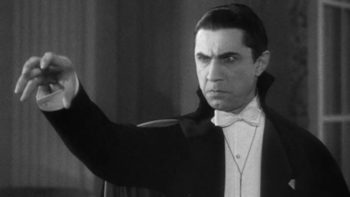 When I joined Jonathan Harker, rolling into Transylvania for the first time, I had this bizarre sense: that Dracula might be like one of those old genre books that you suspect doesn’t have a lot of genre in it. It’s a silly suspicion, but I had it. What if the book barely had any vampires? What if it were just some dry pseudo-historical tale, and in fact the modern vampire—cape, fangs, and all—is a modern mutation?
When I joined Jonathan Harker, rolling into Transylvania for the first time, I had this bizarre sense: that Dracula might be like one of those old genre books that you suspect doesn’t have a lot of genre in it. It’s a silly suspicion, but I had it. What if the book barely had any vampires? What if it were just some dry pseudo-historical tale, and in fact the modern vampire—cape, fangs, and all—is a modern mutation?
Again, what a silly suspicion. Once our villain himself confronts poor Mr. Harker, the genuine horror leaps out of its supposedly dry, empty coffin of history. And I found that I was weirdly happy about this. Yes, folks, here he was, Mr. The Count, dwelling in the castle in the mountains with lightning and terrified locals and everything. He had everything I expected: creepy gentility, pointy teeth, invisibility in mirrors, craving for human blood, aversion to garlic and religious symbols, and fog– and bat-based transformation powers (at minimum). He also had things I hadn’t expected, such as the ability to control creatures of the night, plus a harem of she-vampires.
However, a bonus: the overly weak notion that vampires explode in the sunlight? That’s a myth at least insofar as Dracula is concerned. Stoker’s vampires don’t do this. They simply lose their powers and become as mortal men. That’s much better.
2. I was repulsed/fascinated by the vampires’ inherent sensuality.
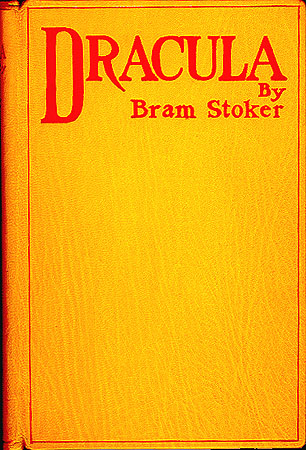 I’m no late-19th-century Gothic literature scholar, so I don’t know how much Stoker’s style and themes followed or diverged from expectations of the era. But I do know that even 120-plus years later, Dracula and especially his three vampire henchwomen were described as overtly sensual and sexualized.
I’m no late-19th-century Gothic literature scholar, so I don’t know how much Stoker’s style and themes followed or diverged from expectations of the era. But I do know that even 120-plus years later, Dracula and especially his three vampire henchwomen were described as overtly sensual and sexualized.
Stoker, to be sure, shows more restraint than a modern author would, at portraying exactly what these henchwomen do and say when they confront a paralyzed Jonathan Harker. That restraint almost makes them worse. He’s fascinated by them, with lips and teeth and all, and I grew rightfully uncomfortable hearing it all. From a biblical perspective, I’m struck with many parallels. For example, see the various frightening fates that befall the victim of the adulteress in Proverbs 7: 21–23.
In our world, people are literally rejecting the gospel of Jesus Christ because he conflicts with particular sexual appetites. I think it’s time for Stoker-style vampires to make a comeback, especially with their fleshly lusts that the story shows for what they are: “dishonorable passions … contrary to nature” (Romans 1:26).
3. I found Stoker’s female characters (mostly) strong.
As a male reader, I love stories in which female characters act like, you know, human beings, with their own wills and opinions and agendas. The best stories do this so well with female characters that their readers don’t even need to write awkward calling-attention-to-it paragraphs like this one.
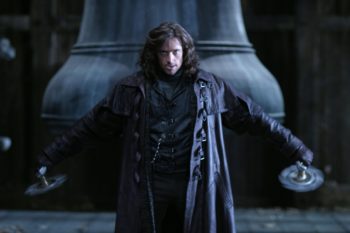
Not the actual Dr. Van Helsing, whom Stoker portrays as an elderly gentleman scholar who goes out of his way to respect women and men.
As for Dracula, the results are mixed. However, many things could have gone wrong with Stoker’s portrayal of the female vampires’ sensuality. He could have tried the “female sexuality is inherently bad” route, but I didn’t see that going on, especially because Dracula himself is shown as super-sensual, with a hyper-“masculinity” that masks his evil. Moreover, female leads Mina Murray (Harker’s fiancée) and her friend Lucy Westenra hold their own so well that, again, you may hardly want to bring up the stigma of the “Strong Female Character” for risk of bringing it all down.
Still, one portion of the novel made me roll my eyes a bit. It occurs later in the tale, when the gentle, elderly scholar (not beefcake action star) Dr. Van Helsing and his posse of male vampire-hunting recruits praise Mina for her most excellent and womanly virtues, and really there is no one equaled in all civilized society who has not the courage and the fortitude for such an endeavor. They’re all correct, of course. But their rhapsodies do go on, seeming to oversell Mina’s genuine strength.
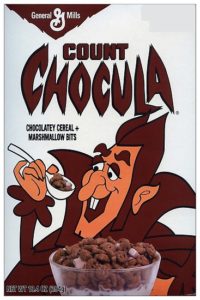
Disgusting.
4. I think I can join fans who despise ‘teen vampires.’
Dracula is so captivating and so genuinely evil a figure—with just enough empathy to provoke a finale tinged with tragedy—that I can now empathize with those fans who resent the Twilight-ification of vampire lore.
Sure, I just got here, and I won’t pretend I can “culturally appropriate” the fandom for you professional vampire fans. But I can, at least, see why you particularly loathe the watered-down “sparkling” vampire.2
5. I found Dracula’s religious elements captivating and plausible.
From what I can tell, the reason why Hellboy uses bullets made of saints’ bones, and every other vampire-killing action star has other mystical-related weaponry, is because Dr. Van Helsing uses uniquely religious elements to subdue Dracula. For example, this gentleman scholar (again, not beefcake action star) uses sacramental bread from the ceremony of Mass to keep Dracula out of his places of refuge.
Now, of course, the Irish-born Stoker likely had in the back of his mind the Catholic belief in transubstantiation. This is the belief that bread is literally transformed into Jesus’s body during the Mass. So, in this universe, the evil Dracula is literally defeated—at least in part—by elements of the literal slain body of Jesus Christ.
That works for me. At the same time, I couldn’t help but develop a little headcanon. What if, in fact, it’s the association of these elements—in some spiritual way—with Christ and one of his church’s activities that actually deterred Dracula? For example, would you have to use “consecrated” bread to ward off vampires with spiritual power? Would a page of Scripture work just as well? Or a simple cross necklace?
6. I wanted to learn more.
Here is where I invite actual horror fans to help further induct this vampire newbie.
Sure, I’ve done some research into Stoker and the older tales from which he drew to create the modern vampire template. I’ve also read fascinating articles about the Icelandic translation/remake of the novel, and the fact that Stoker believed at least some of his fictional elements were based in reality. And, of course, I’ve been made grossly aware that some people claim to be “vampires” who drink human blood.
But now I want to hear from you. When did you read Dracula? What did you think or like about it? As a biblical Christian, what did/do you think or like about it? And what pictures of sin—and the power of righteousness over sin—does the story illustrate?
- Technically I listened to it, courtesy a talented team of Librivox volunteers. ↩
- To be consistent, we longtime professional Christian fans of horror stories may also want to add the Hotel Transylvania movies to our withering criticism. That’s because while Twilight tries to positively teen-sex up the vampire, the animated movies seem to turn this evil figure into a crazy cartoon character. ↩





















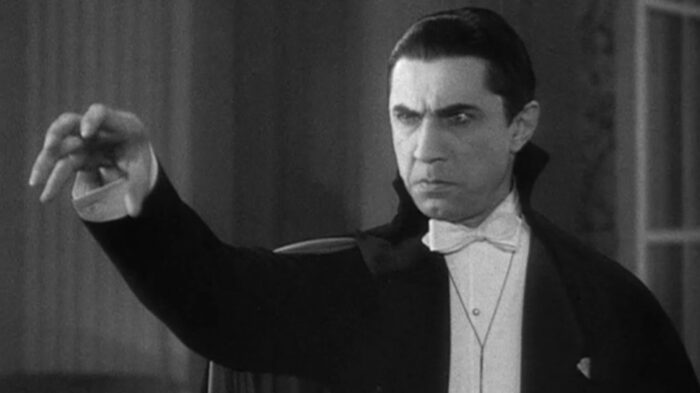







Funny literary comics: http://www.harkavagrant.com/index.php?id=285
I should get around to actually reading Dracula. My Gothic horror reading comes mostly by way of Edgar Allen Poe. Short stories are a lot more manageable.
I agree with your assessment of so much of Dracula, especially the creative dark metaphors it paints with regard to our spiritual lives and the victory of Jesus over our sin natures.
Have you actually read the Twilight series? I found it shockingly uplifting in many of the same ways. In fact, I would go so far as to say it’s not a vampire story; it’s a love story. I have tried so hard to see what people object to regarding the “terrible things in the relationship,” but I just can’t find anything there worth objecting to, other than perhaps a less-than-active main character in Bella. But as far as positively “teen-sex[ing] up the vampire” as you mentioned in your footnote, it’s just not there in the text. The vampire is the one who upholds sexual purity! He insists sex isn’t even an option until marriage, and is very self-sacrificing for Bella. I don’t see the relationship as at all possessive in a dangerous/unhealthy way. It’s just emotionally passionate/intense. I think Twilight has taken a lot of unfair criticism from people who haven’t read the books. As a mom of boys, I was very pleasantly surprised by the life-affirming themes in the story. They were creatively done, and of course there’s always the dark edge of danger because of the vampire element, but the message itself was very redemptive.
Dracula was excellent and still has redemptive themes, but it is much darker than Twilight ever was, in every way.
That’s the point, really, that cultural narratives cover up red-flag or unhealthy behaviors because they’re excused as “just emotionally passionate/intense.”
Like the entire thing where Bella loses whatever sense of personhood (that arguably never exists) and ignores all her non-vampire friends to become a codependent glob in Schmedward’s orbit. Or that thing where she does adrenaline-junkie, possibly-unsafe things like cliff-diving so that the Edward that lives in her head will pay attention to her (GURL, get ye to therapy). Or that part in New Moon where Edward tells her who she is and is not allowed to hang out with (the werewolf clan) and where she is and is not allowed to go (the reservation). He’s not her dad, he doesn’t get to make those rules.
Never read Twilight, so I can’t comment on it’s actual content, but I’m guessing Bella rarely looks miserable when going along with Edward’s antics, and that’s why people don’t seem to understand the issues?
I wouldn’t mind people reading stuff like that in small quantities as long as they realized it isn’t healthy to act like the chars, and that they shouldn’t accept those behaviors in a relationship(in fact, with the right guidance, maybe a book like Twilight can be used to point out unhealthy behaviors in a relationship and help kids grow up knowing what to look out for. Even if the book doesn’t directly call those things unhealthy.)
Even though I don’t think I’d approve of everything in Twilight, ironically I’m almost grateful it exists because it’s got a lot of people talking about those harmful things you’ve mentioned, since it’s practically become a poster child of those issues.
Hello Karen! I’ve not (yet?) read any of the Twilight books. I did, however, enjoy the nonfiction book The Twilight Gospel and reviewed this here on Speculative Faith. The author finds many positive elements about the series, including the extolling of marital sexual fidelity. But he also finds plenty of negatives, including the endorsement of “emotional arousal” (my term). I’ve also read plenty about how Meyer, a Mormon, includes a lot of her religion’s beliefs in the series. (My guess is that this analysis is accurate, simply because talented Mormon storytellers have these concepts in their imaginative DNA.)
Anyway, when I think of teen-sexed-up vampires, I don’t just think of Twilight but of many other knockoff adaptations, including at least one TV series I’ve seen advertised (possibly on The CW network). Even more contemporary adaptations of Dracula have, by accounts I’ve read, presumed the tragic/broken/positive sexual temptation of the character–which is diametrically opposed to the novel’s presentation of the Count’s (and his harem’s) sensuality as being unrestrained, vulgar, and wicked.
I just recently re-read Dracula and realized how much symbolism–genre-based and otherwise–is in it. “Those old genre books” aren’t always deep in a literary sense (think Jules Verne), but this one brought up themes of life and love, friendship, death, courage, and more. Plus a lot of me yelling at the characters for not picking up on the obvious clues that something is wrong.
After reading this article, I’m curious if you’ve read Frankenstein. I think fewer of the original “monster” tropes are in Shelley’s novel, but it’s also a deep, compelling story.
Finally, as a writer, I got a kick out of this blog: http://reasoningwithvampires.tumblr.com/page/4. Someone reading Twilight posts about terrible character moments or wording choices. (warning: occasional strong language.)
Haven’t read Dracula, though I’d like to some day. I used to really dislike vampires and werewolves when I was younger. Partially because they creeped me out, partly because I wasn’t allowed to read stories that contained them, and partly because a lot of times in popular media they came off as cheesy. Now one of my WIPs actually revolves around a world comprised of vampires and werewolves now, though it’s not much of a horror story(though it may end up with creepy parts) The story actually has several different types of vampires, and builds vampires and werewolves into complex creatures with a society all their own.
I think some people tend to count a story as horror sometimes just because of the types of creatures that are in it, such as vampires, werewolves, etc., which is interesting, though I don’t think that’s necessarily the best definition of horror.
I enjoyed Bram Stoker’s Dracula for the same reasons you listed here. (I’m not truly a horror fan though I’ve appreciated reading Mike Duran.) A few years ago I petitioned a church-related reading club to read the book. At first, the reaction was as expected; ‘What? You want us to read what?’ But once the book was read and discussed, several ladies thanked me for suggesting it.
“However, a bonus: the overly weak notion that vampires explode in the sunlight? That’s a myth at least insofar as Dracula is concerned. Stoker’s vampires don’t do this. They simply lose their powers and become as mortal men.”
Wait wait wait. You mean vampires aren’t tragically damned souls trapped in a monstrous half-life? They could quit any time they wanted and go back to being human — in short, they’re only vampires because THEY WANT TO BE???
That is STRAIGHT-UP AMAZING. Why has nobody (that I know of) ever used this aspect of the folklore? What a fabulous metaphor for sin!
I’m not sure about other portrayals, but Stoker’s Dracula can only act as a mortal human during the daytime hours. Otherwise he would only sleep in a coffin. But by night he’s a creature of darkness, endowed with all the shape-shifting and seductive powers that indeed mark a particular kind of sensual, abuse-of-power evil.
I LOVED Dracula. It was partial inspiration for my first novel, CAIN, back in 2016. I felt very similar to you, Stephen, when reading it. All the same surprises. Although, I felt the vampires’ presences were distinctly demonic in their description–rather than sexual they seemed not interested in that, only to have that sort of pull on people. That make sense? It seemed to me that Stoker wanted to make them into the “next-level of demon possession” where the human soul is gone, and the body reclaimed by a demonic spirit. Basically… modern-day Nephilim.
I teach “Dracula” every year to high school British Lit. students, and yes, a cross would control the vampire. When Jonathan Harker is at Dracula’s castle, he is repeatedly protected by a crucifix, which he believes is a trivial piece of superstition and wears only to appease the “ignorant” peasants who beseech him to don it. There’s also a subplot in which, after Lucy’s death, Van Helsing and Siward attempting to prevent Lucy’s transformation by placing a cross necklace on the corpse; alas, a maid steals it.
I’ve read Frankenstein (for school), but not Dracula yet. Reading this post will move it higher on my to-read list.
I did watch a movie just the other night (The Skull 1965 with Christopher Lee) in which a cross necklace saves a woman’s life from a demon.